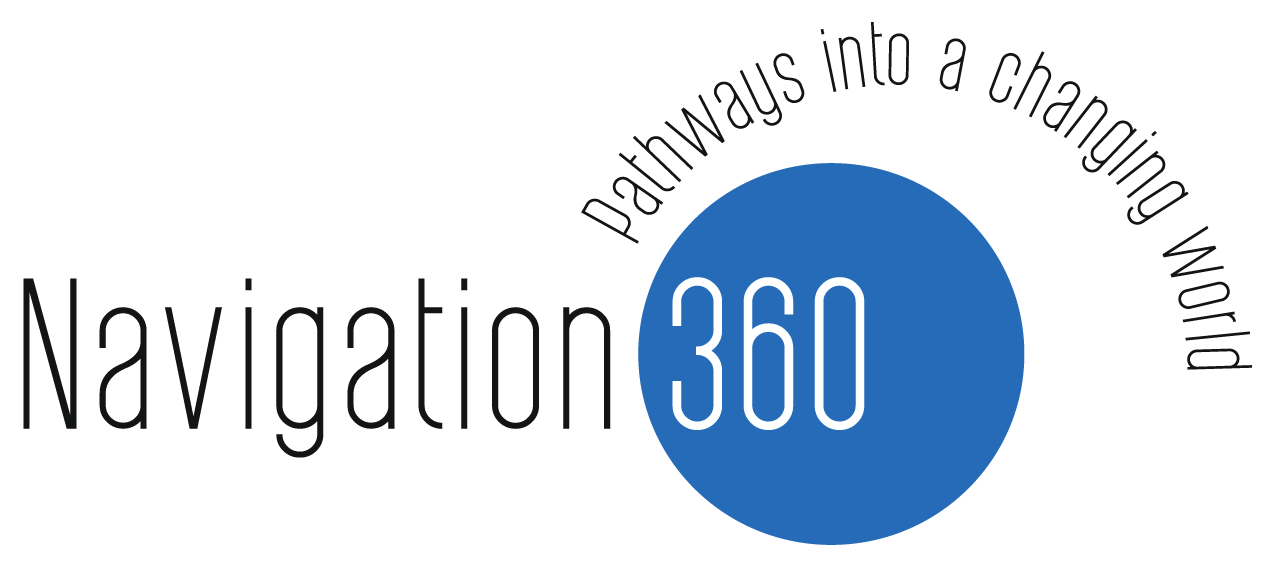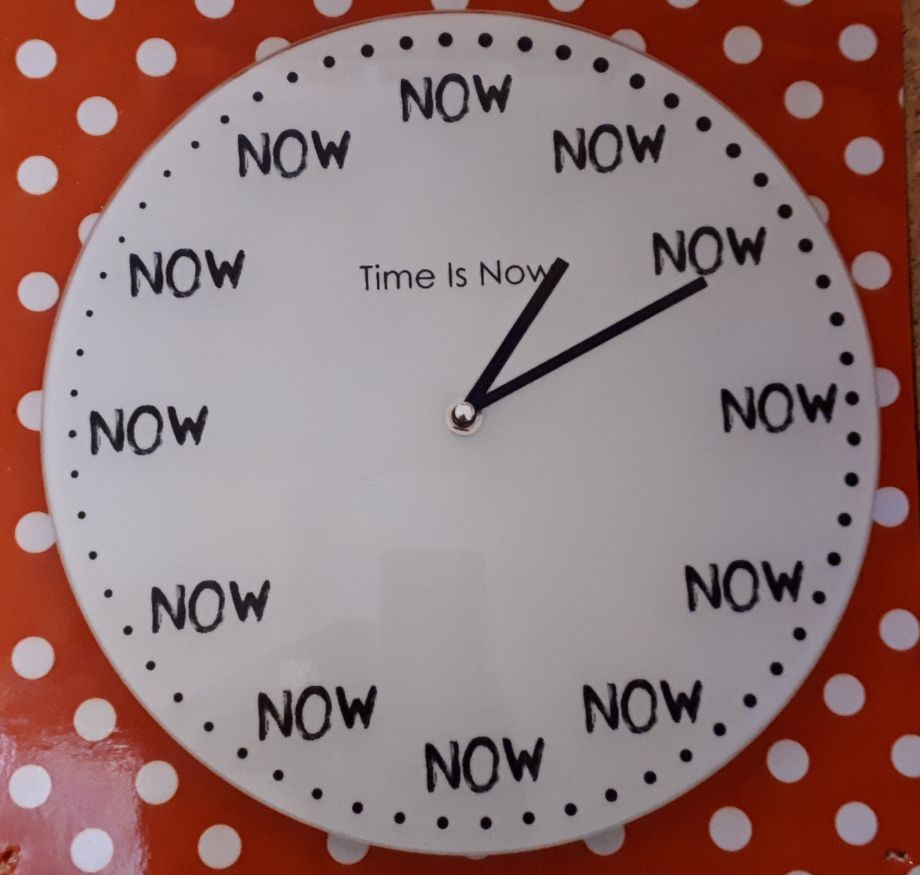The Clock, the Washing Machine and the Internet.
The train leaves at this time. School finishes at that time, please pick up your kids no later than. The meeting will start at, the theatre then, the shop closes when? Meet me at that hour, it’s tea time, lunch time, time to go to bed.
The internet is said to have revolutionised our world. It is true, it has. A similar claim, more modestly made, is made for the washing machine. It’s true, certainly for women around the world. But surely nothing in human history has had a bigger impact than our measurement of time, our division of that fleeting and invisible factor in our life, starting from the solar year, into smaller and smaller units of equal length. Which, with the invention of the 'time piece', has come to determine our whole existence, to shape our whole life.
Nothing is more central to the functional organisation of society today, at any scale, than measured time.
Scarcity in Infinity.
Time has stopped. No, it never stops. If we can live like time, we will experience infinity. Well, at least until the end of the universe. Can you 'make' more time?
Don’t be late, it’s a race against time, we are running out of time, I’ve done overtime, we can save time, it’s time, time is up, you have no more time. No time – the disease of our time. Are you anxious about losing time? Is time money ? Le temps n’a pas de prix.
Time flies. This lasted forever. You’ve been whiling away time. I’ve been in such deep concentration I lost all sense of time. I have all the time in the world. Take your time. This was a good use of my time.
Pace.
I’ll just grab a sandwich and carry on working. I drink my tea slowly and reverently, as if it is the axis on which the world resolves – slowly, evenly, without rushing towards the future. Let’s train to deliver the elevator speech. Let’s enter into deep conversation and allow it to take us wherever it goes. Be quick witted, fast-tongued, ready for rapid riposte. Listen deeply, reflect before you react, sometimes the best answer is silence. Sometimes the best action is doing nothing.
The hand-woven basket took two days to make – the manufactured one eighteen minutes. The hand knotted carpet six months, the machine-woven one six hours. The hand carved table seven days, the factory-produced one four hours. What do I value, why? Have you ever created something with your hands?
Geological time, community time, political time, stock market time, family time, individual time, all coexist. Which time will you be living? It’s happening in real time.
Constantly connected, constantly distracted.
Life is elsewhere. Is it?
Please summarise in two minutes, in two pages: I have no time for more.
You showed decisiveness. You took a hasty decision.
Years of cumulative stress impacted on the heart – now he needs a pace maker. Is he still young at heart?
Pick up the pace man! Does speed generate meaning? Life is not a sprint, it’s a marathon. Pace yourself.
Fast thinking, slow thinking. Fast food, slow food. Fast production, slow production. Fast living, slow living. Which is appropriate when? Is the urgent the important? Where does quality lie?
Past, Present & Future.
We can’t change the past. We can’t control the future. In the presence is where our power lies.
Time is the present. But the present can be burdened, heavy, hard to move, like lead, like a stubborn donkey, a slowly dying star, overloaded with the past. Our personal past, unconscious lessons from experiences, a few scars on our bodies, perhaps some more on our souls, archives of memories, only a few accessible, hardly catalogued. The past also of our generation, which found its personal identity in a similar world, the same moment in history.
Time now is the present. A moment of suspension, of in-between. Nothing happens, we are waiting for a new reality to present itself. Does it bother me, drain me? Does it nurture me, revitalise me?
Time now is the present. A present that always escapes. In the time needed to say ‘present’, the present is gone, swifter than quicksilver, a bat, a quantum particle. How can we value time if it is instantly obsolete? Turn of that screen now, look up, be present!
Time now is the present. But the future plays tricks. Its anticipation colours the present. When we have a sense of assurance, of stability, the future is an extension of the present, it doesn’t merit much attention, it will come by itself, the stream will run its established course, within its banks. The future is a time I am planning for, a reality to shape according to my desire. What I do today is to protect what I have now for later, perhaps do more, have more, be better. But the future is unpredictable, the unexpected happens, the world is changing ever faster, butterflies flapping their wings at the other end of the earth cause thunderstorms in my house. The present acquires the orange colour of a uncertainty, of sun set, of foreboding.
Time now is the present. But the present can be restless, a place to move away from, to make or find another one with stability and predictability.
How can we live not knowing what we will be doing two months from now? How can we live knowing exactly what we will be doing two years from now?
Time-less Living.
One day (a planned and determined day?), all clocks and watches will be banned from my environment (which also means no computers or mobile phones who irritatingly insist on displaying time), perhaps for a month (oh no, organised time again), I mean for an indefinite period of time, I mean for as long as it takes, I mean for who knows how long. If I can afford it. It implies stepping out of time-organised society, living with no more than the alternating light and dark of the circling sun, listening to the murmurings of the body, that will tell me when it needs food and water and sleep. It will be a most extraordinary experience, an unlearning of life long habits, complicating interactions with wider society.
The Elder in Us.
I am a biological being. You are a biological being. We have a life time. We were absorbed in the slow time of childhood. We are thrilled by the energetic time of youth. We savour the vigorous time of maturity. We look with surprise at the accelerating time of old age. The different qualities of the phases of life are a personal and a societal experience. At the age of 20, my future lies ahead of me, time is plenty, I can afford to experiment, a bit of trial and even error. When I am 60, the future has shrunk, time has become a more precious commodity. What am I going to do with the remaining years of my life? What would I tell myself at the age of 24 with the benefit of hindsight?
If I am lucky to live in a society that respects ‘elders’, I will enjoy greater status and care, and live and perhaps die with dignity. If I am so unlucky as to live in a society that celebrates the creative energy of ‘youth’, I will gradually, or suddenly, become marginalised, lose social standing and respect, become discarded. My skills will have become outmoded or outsourced, my ideas branded as old fashioned, my way of working too slow. No longer a ‘productive’ member of society. A burden on the social system. An uninteresting person, stuck in the past. Or so will be the perception, the prejudice.
Maybe I end up tired and exhausted of a life time of work and worries. Maybe I have let myself go mentally, entrenched myself into fixed beliefs, nostalgic for the past, my past, closed and blind to a changing world, a multitude of what could have been new encounters, new experiences, new perspectives.
Maybe I keep my mental vigour, my sense of curiosity, my passion for learning, my ability to think critically. Maybe the elder in me is approaching peak performance, drawing on the wisdom of a rich and reflected experience, able to play multiple roles with tact and skill, and judge more compassionately. More patient, more appreciative that quality is best served by ‘giving time’, by being attentive, being present, here, now. Hold your judgment for a moment!
Living across Generations.
No mum, she’s oold! Old-fashioned, ugly, from the past, a relic, boring. Who still listens to that music?
Oh well, that’s the new generation. They’re different. They have no life experience yet, but think they know everything. They will discover, perhaps the hard way. Are that clothes? We would never have behaved that way!
My generation. Then that of our children, our grandchildren. The next ones lined up, in the room already, changing much more rapidly than us now. We have our generational conflicts, then we go separate ways each with our age groups. Then. Then?
Health and peace permitting, we will live a fairly long life. Inevitably though, family, friends, acquaintances will pass away with increasing frequency. Our heroes of music, literature, painting, science, philosophy, politics, or manual skills, those whom we learned from, whom we admired, those that inspired and enthused our generation in our formative years, have long gone. Will I, you, end up increasingly lonely, waiting for our hour to come?
Or will I, you, connect across generations, beyond children and grandchildren, have friends of all ages, one evening in the joyful and meaningful company of three friends whose combined age is 76 life years, another evening in the company of three friends whose combined age is 265? Having meaningful conversations, sharing joy, care, appreciation?
La Longue Durée – the Ancestor in Us.
My history lessons were lists of kings and battles, to be memorised, teaching me nothing, explaining nothing. My history and geography studies showed me how much presence of the past there is in the present. The spread of different natural resources around the world’s geography has shaped economies and trade for centuries. Onto which politics has been grafted. Our current world views, ways of thinking and seeing, have deep roots that the surface flurries of fashions, intellectual and other, have not eradicated.
So what legacy, what footprint, will we leave for posterity? What will be the impact of our decisions six generations from now? Will we contribute, directly or indirectly, to the over-exploitation of our planet, the waste and pollution? Will we contribute, directly or indirectly, to exclusion, discrimination, the violation of other people’s rights? Do we need ‘fame’ to be able to contribute to a positive legacy? What will we nurture, other than our own egos? Will we sign up to the project of the ‘clock of the long now’ – a time piece for 10.000 years, to correct our short-sightedness and help us see again ‘la longue durée’?
Today we are young. Sooner than we think, we too will be ancestors. Will we take on that role, that responsibility, in how we live, also in the small choices of everyday life?

